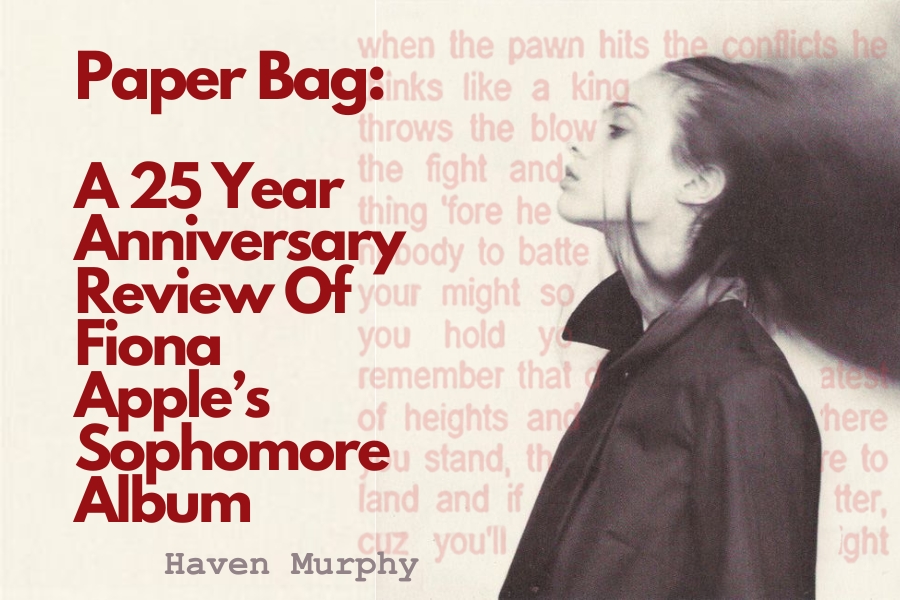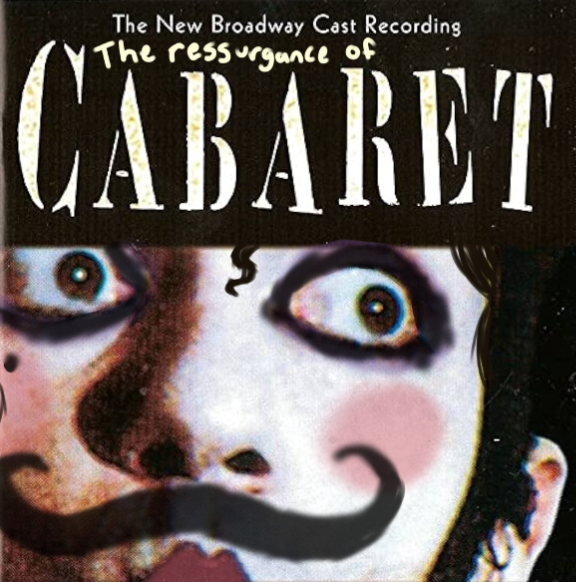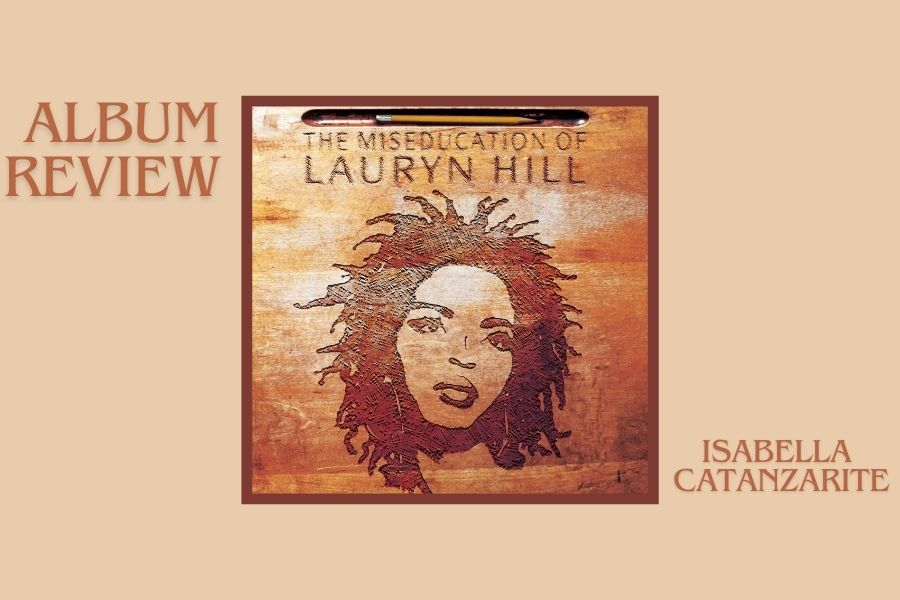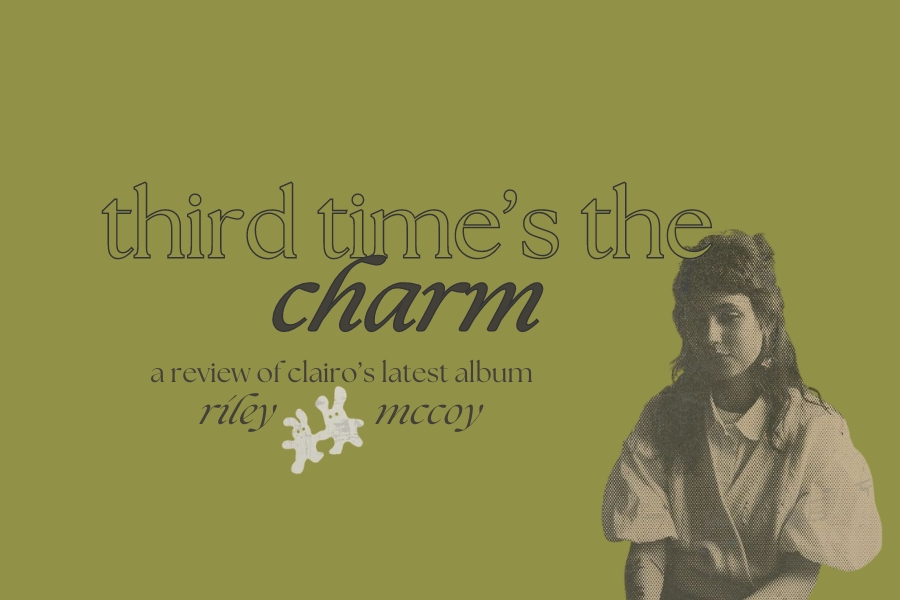On February 2, London band The Last Dinner Party released their debut album, “Prelude to Ecstasy.” This supremely talented quintet of girls met during their freshman year at university and drunkenly decided to start a band. After only about a year of playing local gigs, the group was signed by big shot label and management groups, and they have catapulted to fame since the release of their first song in the summer of 2023. Despite having almost no music out until very recently, The Last Dinner Party has grown an enormous fanbase by performing live shows instead of putting their music at the mercy of social media algorithms, and they’ve recently opened for huge artists like Hozier, the Rolling Stones, and Lana Del Rey. The Last Dinner Party makes music with a theatricality and storytelling unique to most modern music, perfect for fans of Suki Waterhouse, Chappell Roan, ABBA, and Queen.
Enjoy the following song by song review of the album:
Prelude to Ecstasy
The album’s titular song sets the tone for the collection- the masterful overture uses a full band and orchestra to create a theatrical piece reminiscent of West Side Story. Foreshadowing the rest of the album, TLDP plays outside of the prelude-rulebook and makes what is usually a song of soothing musical respite into a symphonic demonstration of joy and pain.
Burn Alive
“Burn Alive” illustrates a concerningly common theme of the album- unbalanced, destructive relationships. As a lover craves to sacrifice themself at the stake for their lover’s attention, the song alternates between eerie verses layered over a dissonant backdrop and a Kate Bush-esque rock and roll chorus. This first vocally-accompanied piece of the album introduces a common hallmark of TLDP’s work with the use of potent biblical imagery.
Caesar on a TV Screen
The lyrical dexterity of The Last Dinner Party becomes officially undeniable with this narrative-style track that simultaneously is the story of a personal craving to be loved and a critique of the patriarchal world’s dismissal of femininity. A soft, ballad-like introduction morphs into a peppy pre-chorus that changes into a dictatorial anthem, shuffling between time signatures and style all the while. The song could either be a megalomaniacal villain origin story or just someone tired of a society that treats being a woman like a sin, but I guess duality is important. Ultimately, “Caesar on a TV Screen” masks a vulnerable need to be loved behind a violent metaphor and jarring dynamics.
The Feminine Urge
My second favorite song on the album, “The Feminine Urge” tackles the generational trauma of women learning to bend themselves to the whims of men, consume their poison, and spit it out as love. Writer and lead vocalist Morris sings,
“Here comes the feminine urge, I know it so well
To nurture the wounds my mother held”
This song differs from its precursors on the album- it relatively sticks to the typical verse-chorus pattern to create a more pop-like sound for the lyrically melancholic piece.
On Your Side
Following a similar theme as “Caesar on a TV Screen,” this is another track about a desperation for a partner’s masochistic, unrequited love. However, there is a sharp deviation in terms of style; “On Your Side” is a mournful piece, dragging the listener through a doomed love story to its tragic demise. The song ends with the lover’s dying, gasping breaths that leave the listener thoroughly unsettled and hungry for more.
Beautiful Boy
Morris wrote this song after a friend of hers lost his phone on a vacation and relied on the kindness of strangers to aid him. She sings about how she envies what privileges are given to a beautiful man, when beauty in a woman affords them only more danger:
“I am held captive by the ribbon ’round my neck
Each course I chart determined by a wreck
The power in my hips is useless in the dark
What good are red lips when you’re faced with something sharp?”
The singular verse fades to a quiet instrumental interlude, then builds back up as the members of the band vocally layer atop one another, repeating “beautiful boy”.
Gjuha
This song was written and sung in Albanian by Aurora Nischevi, the keyboardist, as she grapples with the shame of not being fluent in her mother tongue. “Gjuha,” meaning “language” in Albanian, introduces yet another new sound to the album, with Nischevi’s vocals being accompanied only by plucked guitar strings and the colorful harmonizations of her bandmates.
Sinner
“Sinner” describes the shame a person feels about their desire for another and how they wish they could have known them without the threat of society’s judgment. Lyricist Lizzie Mayland wrote this song about being introduced to queerness in her childhood through the disdain of the Catholic Church, condemning her to a struggle with self-acceptance and queer love. With a strong, angsty guitar line and undeniably catchy chorus that’s easy to belt in the car, this track is my personal favorite of the entire album.
My Lady of Mercy
After the last few songs leave you emotionally reeling, “My Lady of Mercy” offers a tether that slams you back to Earth with a funky little beat. It takes your coat, tells you to settle down and stay a while, then proceeds to yank the shaggy 70s carpet from beneath your feet with an intense rock and roll chorus. This track thematically connects others on the album as it talks of someone’s inability to balance their religion and queerness while in a lopsided relationship.
Portrait of a Dead Girl
This song illustrates the complexity of abusive relationships, comparing an abusive partner to a wolf that could lay its head on your lap just as easily as it could rip out your throat. Throughout the song, the narrator struggles between her addiction and inability to live without her partner, but simultaneously hating him and wishing for the strength to leave.
Nothing Matters
The Last Dinner Party’s first official release as a band, “Nothing Matters,” was the song that skyrocketed them into stardom almost overnight. The pop-sounding song garnered the band millions of streams and attention across all social media platforms. This was the song that caught my attention enough for me to stay on the lookout for any future releases. “Nothing Matters” opens with a similar quarter note introduction to “Sinner,” though it is more ethereal and blurred compared to the unforgiving staccato of “Sinner.” This song subverts the established theme of romantic tragedy for one of security and belonging in a relationship.
Mirror
This song, about perception and identity, is a perfect example of how The Last Dinner Party’s unconventional songwriting and recording process has unique advantages. After writing their songs, they play them live and mess around with them, adapting their work based on audience reactions and what melodies they find that flow organically in performance, like the instrumental section at the end of “Mirror”, making for a very collaborative and cohesive sounding album.









